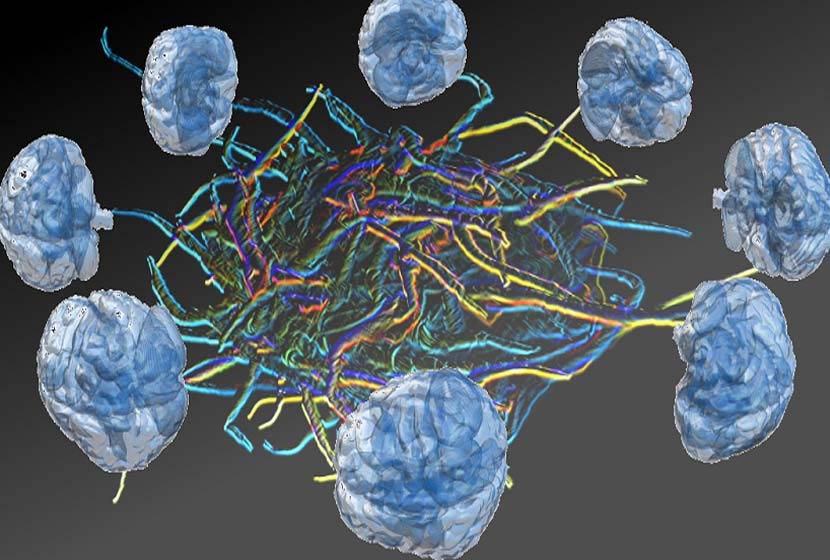In complex societies, the multiplicity of functional spheres and their intricacy in the social game make it impossible to know clearly and absolutely which sphere is predominant for the legitimacy of action. Is the economic superior to the political, or is it law, social or scientific? There is no hierarchical point of view that decides the supremacy of one or the other of the functional spheres. From then on, everyone sees noon at their door. Each sphere gives primacy to its own function and considers the other functional systems in particular and society in general as its environment. (1). Each sphere thus has its own ecology.
The mode of development of our current complex societies has pushed this mechanism to the extreme and has gradually modified it by transforming the dialogic* modality which should underlie it into a hologrammatic modality. This means that, just like a hologram where the whole is in the part which itself is in the whole, each sphere claims to include the whole society within its perimeter of functionality. In this perspective, there is always a principle of unity but which is diffracted into a multitude of units of diverse origins. Each sphere projects its unity of society according to its particular logic. Politics is no exception to this rule.
● What value then should be given to a representation of society that is only the reflection projected by one sphere among others? For a long time, politics, then economics, projected their predominant logic on society as a whole.
Today, it is the media that is getting involved in this competition. Tomorrow, science, health, or religion, or art, may do just as well. When one part takes itself for the whole, it conceals a specificity of any complex social system: the interdependence and interlocking of various functions. If there is a crisis in politics today, it is because of the impossibility of defining which of the functional spheres is the dominant one.
But this question is pointless because defining one sphere rather than another is contrary to the characteristic of the complex societies in which we live. None of them can play, with unquestionable legitimacy, the role of creator, keystone and protector of the unity of society.
● Multiple and numerous functional spheres produce an overabundance of functional subsystems and possibilities, each in its own domain. The most trivial example is that of the informational media sphere, which has almost reached saturation point in the production of information.
The same applies to the legislative sphere, which produces more laws and standards than it can enforce. The push to the extreme of specialization and efficiency of the functional spheres leads to a situation where turbulence, the risks involved and the dangers of self-destruction lead to uncontrollable situations. This overproduction of possibilities without coordination or constraint from any external decision-making centre forces us to be reduced to hoping that systems can exclude from within themselves non-viable or extremely risky pipelines. (2).
● Each functional system looks at reality from its own point of view, ignoring that other criteria may come into play. For example, the economy is obsessed with its own criteria of profitability or opportunity, but has great difficulty integrating into its logic the criteria of other spheres such as ethics, social obligations, environmental risks, health, and many others.
In general, it is only when an external criterion enters - almost by breaking in - into the range of those usually dealt with by a sphere, that the beginnings of listening are unravelled. The example of global warming is interesting in this respect.
As long as this question remained in the spheres of ecology or science, it remained almost inaudible in the economic or political {just off} spheres. It was only at the end of 2006 that the climate risk was quantified. (3) As a result, the economic sphere began to take a more serious interest in this issue and to see it not only as a risk but also as an opportunity for development and potential new markets. As far as politics is concerned, we can date back to 2004, when a report was published for the Pentagon (4 ), the widespread interest in this climate issue, which was then considered a real geostrategic risk and a danger to world peace.
● Functional spheres have no loyalty to the company. They are closed systems that have their own logic of functioning, development and reproduction. It is precisely this inability to perceive the totality that paradoxically makes them effective. The politics of the contemporary age will not therefore seek to carry out an impossible task by seeking to regulate from outside the functional spheres, which are by nature closed in on themselves.
Nor can it claim to be the guarantor of a general unity against particular interests. Politicians cannot claim to represent the unity of society simply because such unity does not exist and because hierarchical dominance has disappeared with the emergence of complex systems.
● This question of the search for an exogenous point capable of bringing order to complexity is not a new one; it is a real quest for the Grail that many thinkers have carried out throughout the ages. In his time, Leibniz had observed that monads 'had no windows' and could not communicate with each other. (5) . The search for an entity capable of giving an order, a programming of all the monads, has therefore stimulated all the great minds. Is it God, Adam Smith's "invisible hand", Hegel's "cunning of reason", holism?
Many have sought an illusory structure of the whole, an external fixed point. Jacques DerridaIn his deconstructivist approach, he wondered what would happen if one were to remove from one's mind the idea that this fixed point, this "centred structure", could exist. Without a keystone, would the system collapse? The cry of Nietzsche Does "God is dead" call for eternal chaos, the end of the beauty of the world, its meaning and purpose? Complexity theory provides an answer to this anguish: to replace this external fixed point of monadology, which proves to be illusory, by an endogenous fixed point, produced by the action of men within the spheres themselves, but which, through a mechanism of self-exteriorization, presents itself as an external point of reference, capable of orienting action. (6).
(1) Cf. Niklas LUHMANN, Politics and Complexity, Cerf, 1999.
(2) Numerous examples can be called upon to illustrate this phenomenon: genetic manipulation for science, certain uses of energy for the economy, doping for sport, speculative commodification for art, caste confinement for politics, etc.
(3) Cf. the Stern Review.
(4) Report commissioned by the US Department of Defense from two experts from the Global Business Network, Peter Schwartz and Doug Randall, the first results of which were published in Fortune magazine on 9 February 2004. The full French translation of this report is published on the Internet site : http://paxhumana.info
(5) Gottfried LEIBNIZ, Principles of Nature and Grace Founded in Reason: Principles of Philosophy, or, Monadology, PUF, 2001
(6) Jean-Pierre DUPUY, Complexité sociale, article in Dictionnaire des Sciences humaines, edited by Sylvie Mesure and Patrick Savidan, PUF, 2006












